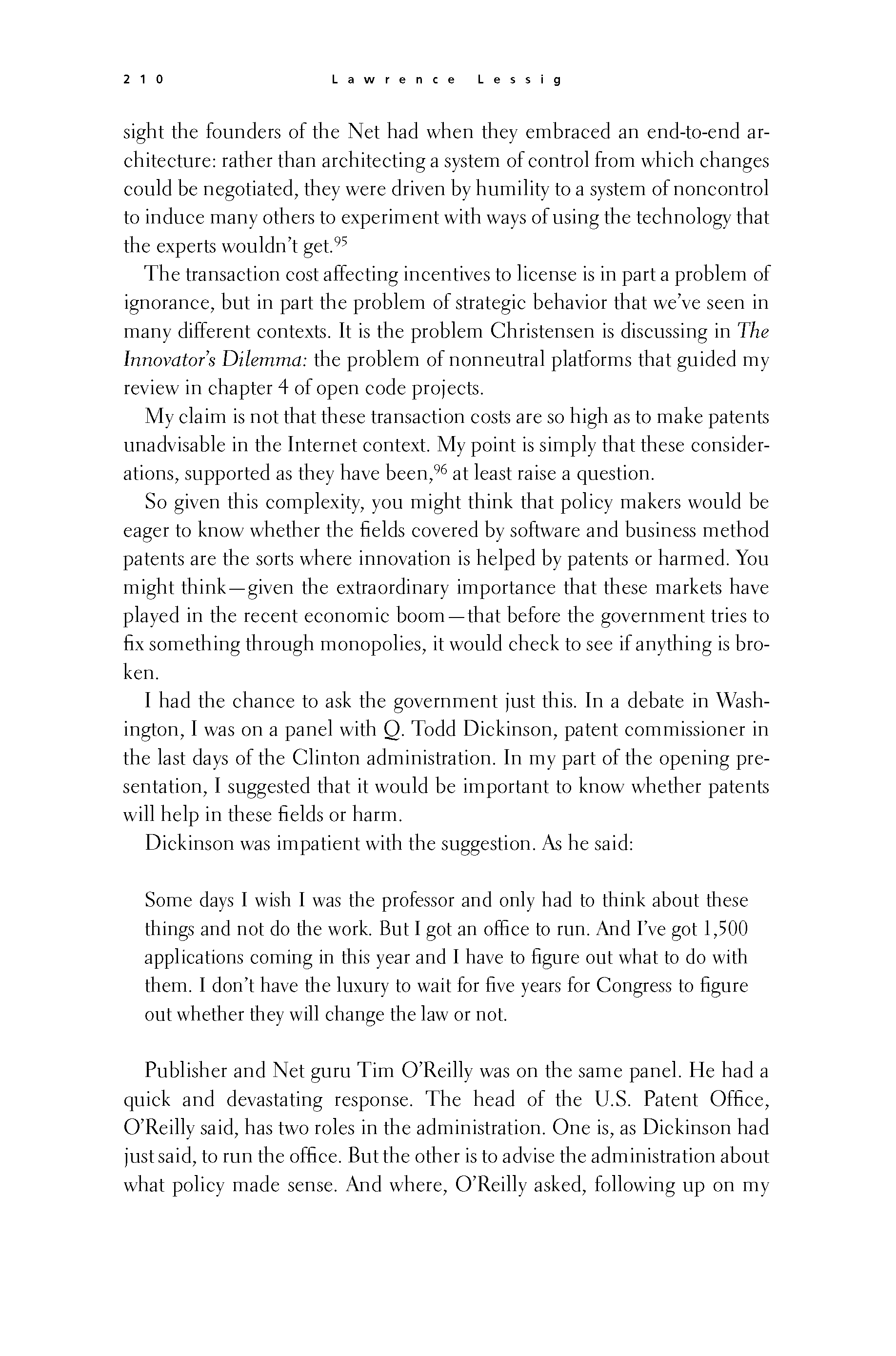 p209 _
-chap- _
toc-1 _
p210w _
toc-2 _
+chap+ _
p211
p209 _
-chap- _
toc-1 _
p210w _
toc-2 _
+chap+ _
p211
sight the founders of the Net had when they embraced an end-to-end ar-
chitecture: rather than architecting a system of control from which changes
could be negotiated, they were driven by humility to a system of noncontrol
to induce many others to experiment with ways of using the technology that
the experts wouldn't get.[11-95]
The transaction cost affecting incentives to license is in part a problem of
ignorance, but in part the problem of strategic behavior that we've seen in
many different contexts. It is the problem Christensen is discussing in _The_
_Innovator's_Dilemma:_ the problem of nonneutral platforms that guided my
review in Chapter 4 of open code projects.
My claim is not that these transaction costs are so high as to make patents
unadvisable in the Internet context. My point is simply that these consider-
ations, supported as they have been,[11-96] at least raise a question.
So given this complexity, you might think that policy makers would be
eager to know whether the fields covered by software and business method
patents are the sorts where innovation is helped by patents or harmed. You
might think -- given the extraordinary importance that these markets have
played in the recent economic boom -- that before the government tries to
fix something through monopolies, it would check to see if anything is bro-
ken.
I had the chance to ask the government just this. In a debate in Wash-
ington, I was on a panel with Q. Todd Dickinson, patent commissioner in
the last days of the Clinton administration. In my part of the opening pre-
sentation, I suggested that it would be important to know whether patents
will help in these fields or harm.
Dickinson was impatient with the suggestion. As he said:
____ Some days I wish I was the professor and only had to think about these
____ things and not do the work. But I got an office to run. And I've got 1,500
____ applications coming in this year and I have to figure out what to do with
____ them. I don't have the luxury to wait for five years for Congress to figure
____ out whether they will change the law or not.
Publisher and Net guru Tim O'Reilly was on the same panel. He had a
quick and devastating response. The head of the U.S. Patent Office,
O'Reilly said, has two roles in the administration. One is, as Dickinson had
just said, to run the office. But the other is to advise the administration about
what policy made sense. And where, O'Reilly asked, following up on my
[[210]]
p209 _
-chap- _
toc-1 _
p210w _
toc-2 _
+chap+ _
p211